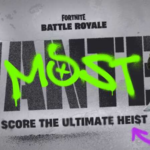Published on: 06/01/2023
Phygital: Physical NFTs might be difficult for holders, experts say

With the rising popularity of phygitals — NFTs that are attached to physical products — experts said it would be difficult for NFT holders to redeem them.
Buyers usually only need to provide their digital wallet addresses to purchase NFTs. In the phygital case, this buying method makes it difficult for sellers to collect the necessary personal information required for shipping the physical products.
Vinsent CEO Jacob Ner-David said his company encountered the problem following the launch of two NFTs tied to physical wine bottles. At the end of 2021, Vinsent launched public and private NFT drops that consumers could redeem for physical bottles a year later.
Although the wine marketplace’s NFT project gained many buyers, there were only a few NFT holders came to claim their physical wine bottles. For the private drop, 15 percent of the buyers claimed their rights. Meanwhile, 30 percent of public drop holders came forward.
Ner-David said it was due to the difficulty in the redemption process and communication fault on his company’s end. Vinsent only communicated with its NFT holders via Twitter, Discord and Telegram at that time.
“We have learned that there must be a redemption mechanism in place before launching a physical NFT drop,” Ner-David added.
1/ We are allowing all Lace Engine holders to reserve their sneakers in the RTFKT Interdimensional Hub. This will allow holders till May to figure out a US shipping address.
To pick up a Lace Engine NFT on secondary:https://t.co/PoPwbooYqG
— RTFKT (@RTFKT) December 12, 2022
Phygitals in 2023
Companies that offer phygitals have started implementing different methods to boost the redeeming rate. NXTG3NZ strategic adviser Jeff Malko said his company facilitated the 7220 NXTG3NZ NFT digital sneaker drop for rapper Lil Durk in March last year.
The physical sneakers tied to the NFTs would be available in the first quarter of 2023. Jeff Malko said the company expected 80 percent of the buyers to be non-experienced crypto holders and users were given the option to submit their shipping address.
Another way NXTG3NZ tackled the redeeming issue would be by implementing a first-come, first-served system. Holders, regardless of the tiers, could claim their physical products but must choose their preferred item and redeem it immediately or someone else could claim it.
Although some brands find phygital redemption challenging, others have found success by implementing certain strategies. BlockBar chief marketing officer Charlotte Shaw said her wine company offers storage, insurance, a marketplace for resales and international shipping.
According to Shaw, BlockBar ships physical wine bottles from its facilities in Singapore. NFT holders must redeem their collectibles via BlockBar’s website. This redemption will “burn” the digital bottle. It also means that the buyer must enter the shipping address and comply with local jurisdiction.
Polygon head of metaverse Brian Trunzo said recording user information is pivotal for phygital projects. Some companies are currently developing solutions to provide better privacy protection for NFT holders when disclosing their personal information.
Web3 commerce layer Boson Protocol co-founder Justin Banon said his company had come up with a DApp that offers an end-to-end encrypted messaging solution. This app makes sure that the recipient of the holder’s personal information is only the seller.
Phygital market to grow
Despite the challenge, experts still predict that the phygital market will grow in the coming years as many brands have started investing in this product. Starbucks, for example, is gearing up for a loyalty program that involves digital collectibles.
Banon said phygitals would soon be parts of customer loyalty programs for several brands.
“Where customers receive NFTs for performing target behaviors such as purchasing, engaging, and staying loyal, these loyalty NFTs can then unlock access to digital, physical and experiential assets,” Banon said.
-
Gaming // 2023-01-05
H&M partners with Dubit to create metaverse Loooptopia



